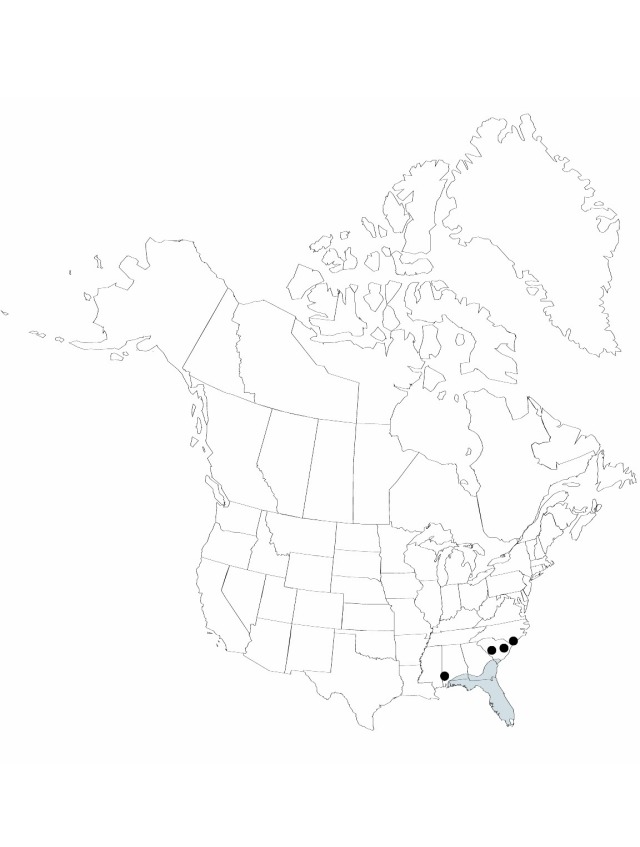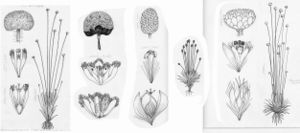Syngonanthus flavidulus
in H. G. A. Engler, Das Pflanzenreich 13[IV,30]: 256. 1903.
Herbs, perennial, cespitose, rosulate, 5–30 cm. Stems contracted or elongate to 5 cm, chaffy. Leaves: principal leaves mostly spreading-recurved, narrowly linear, 2–6 cm, base pale, apex narrowly acute to subulate, abruptly dilated, surfaces nearly glabrous or grading to copiously hairy. Inflorescences: scape sheaths erect or narrowly ascending, as long as leaves, proximal surfaces glabrous or scattered glandular-pilosulous; scapes filiform, to 1 mm wide, pilose, hairs variably ascending to spreading, translucent, pubescence increasingly glandular distally; mature heads white or yellow-white (aging dull white or pale gray), hemispheric to globose, 5–10 mm wide; receptacle densely pilose, hairs translucent, sharp; involucral bracts ascending, later spreading to recurved, lance-oblong or narrowly ovate, larger ones 3 mm, margins entire, apex acute, glabrous; receptacular bracts absent. Staminate flowers: sepals pale translucent, spatulate to oblanceolate, 2–3 mm, apex acute, adaxially pilose distally; androphore 2.5 mm, hairy at base; petals pale yellow, short-triangular. Pistillate flowers: sepals pale, translucent, linear or narrowly oblong, 3 mm, apex acuminate, surfaces glabrescent; petals connivent or connate above ovary forming beaklike apex, pale, narrowly linear, 3 mm; gynophore hairy; style with apex unappendaged; stigma branches exsert, linear. Seeds translucent brown, ovoid, 0.5 mm, finely longitudinally lined, very finely cross-lined, apex apiculate.
Phenology: Flowering spring–early summer.
Habitat: Moist sands of bog and pond edges, ditchbanks, pine savanna, sandhills ecotones
Elevation: 0–200 m
Distribution

Ala., Fla., Ga., N.C., S.C.
Discussion
Selected References
None.
